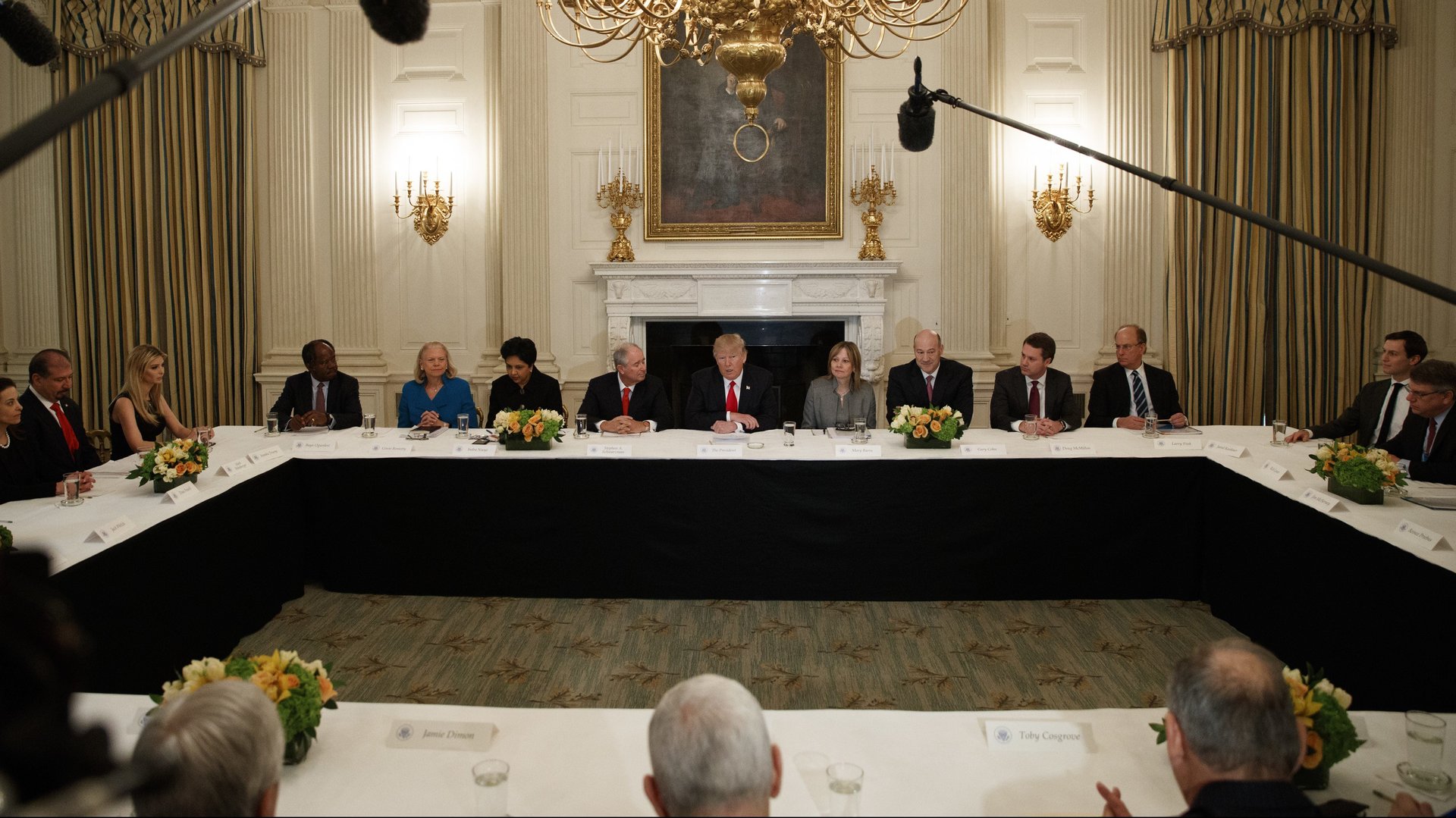Don’t bet on other business leaders to leave Trump’s council soon—Uber is a very special case
Travis Kalanick, CEO of Uber, made a splash when he announced he heard the pleas of his employees and customers and was dropping out of a group of business leaders meeting with US president Donald Trump today.


Travis Kalanick, CEO of Uber, made a splash when he announced he heard the pleas of his employees and customers and was dropping out of a group of business leaders meeting with US president Donald Trump today.
Progressives hoping for similar defections shouldn’t hold their breath. Trump’s business council—officially called the president’s strategic and policy forum—has few members who are as subject to the pressure of employees and customers as Kalanick.
Uber relies on millennials for most of its US customers—almost three quarters of its user base is between 16 and 34—and that’s a group that favored Clinton over Trump, and pushed the #deleteUber movement. Many of Uber’s freelance drivers are immigrants without strong ties to the company, and almost 1,000 signed a petition urging Kalanick to drop out of Trump’s council. More than 200,000 customers deleted their Uber accounts, according to the New York Times (paywall).
Other members of the forum won’t be as easily swayed. Tesla’s Elon Musk, the sole remaining CEO from Silicon Valley, is probably the most likely to hear from his customers, but he’s stated he wants to work with Trump:
Others, like Rich Lesser, CEO of Boston Consulting Group, attended the meeting, even if it has angered employees and clients want him to speak out against Trump’s immigration ban. Lesser offered only a tepid statement about the value of diversity on LinkedIn, without addressing the executive order, which has stirred unrest at the firm, a source told Quartz.
Most of the business leaders fall into three main buckets:
- Finance and consulting. Among them are Jamie Dimon, CEO of JP Morgan; Steve Schwartzman, CEO of Blackstone and chairman of the forum; and Mark Weinberger, CEO of EY (formerly Ernst & Young). Their companies and customers have an interest in Trump dismantling the Dodd-Frank reforms of Wall Street, and they’re eager to work with him. They also rely on international employees, and will try to persuade Trump to bend his views.
- Traditional blue chip American companies. They include Mary Barra, CEO of General Motors; Ginni Rometty, CEO of IBM; and Indra Nooyi, CEO of Pepsico. They sell products and services to millions of Americans across the political spectrum, and would have little to gain from boycotting the council. They also have much at stake from Trump’s potential tax and trade policies, so they want an audience.
- Assorted experts. This group includes heads of smaller companies and organizations who have specific expertise, like Paul Atkins, the former commissioner of the SEC; Daniel Yergin, an expert on global energy policy; and Toby Cosgrove, CEO of the Cleveland Clinic. They have no constituents to please—dropping out of the group would only deny Trump the counsel they probably think he needs.
Ultimately, the decision of a CEO to work with Trump is a calculation based on their personal politics, their company’s interests, and whether its brand would be enhanced by publicly rebuking the president.
It’s not clear what influence, if any, the CEOs meeting with Trump today will have. But, as Musk suggests, it’s certainly greater than that of the CEOs who aren’t there.